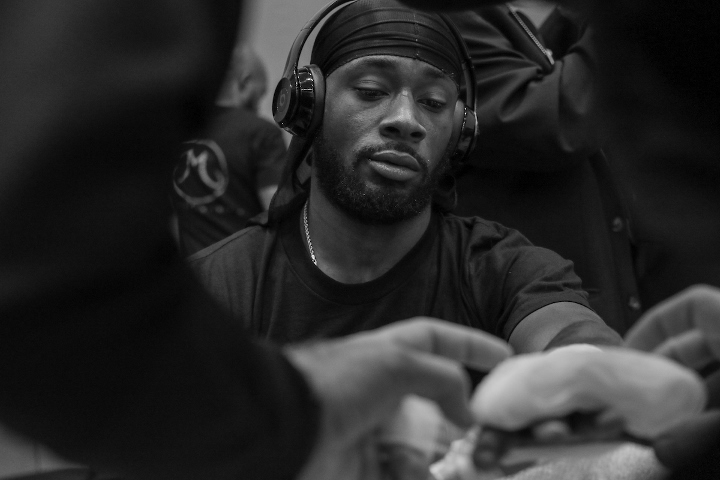Junior featherweight Tramaine Williams had a frightening moment when he collapsed in the ring against Ryan “Stone” Allen.
The bout took place June 20 at Thunder Studios in Long Beach, California, where referee David Solivan stopped the fight at 1:54 of the first round, awarding Allen a knockout victory after Williams collapsed and had a seizure.
Williams (20-2, 6 KOs), 31, of New Haven, Connecticut, was competing in Team Combat League, a team-based competition where cities have "fight teams" that compete in one-round bouts. Williams hadn’t fought professionally since his April 2023 unanimous decision loss to Elijah Pierce at the Mohegan Sun Casino in Uncasville, Connecticut. Williams attributed his collapse to binge drinking, which he had continued until five days before the fight.
“So once I stopped drinking, I was dehydrated. You know, alcohol dehydrates you,” Williams said. “So I had about five pounds to lose. So on top of me stopping drinking, I had to lose five pounds. So I was already dehydrated from alcohol, and then I lost more weight from training. I didn’t eat. Then when the fight came, I didn’t hydrate properly.”
Williams admitted that boxing had kept him away from alcohol, but his drinking had been "on and off" since he was 19. He would drink when he wasn’t in camp and stop when he was training. It was a cycle he was used to.
“This time, it was so close to the point where I had to lose weight and then fight,” Williams said.
Williams was initially scheduled to fight two weeks earlier in Atlanta, but the fight fell through, which left him feeling unsettled.
“So that put me in a weird position where I felt awkward, like you don’t need me,” Williams said.
Williams realized something was wrong during the fight as he struggled to find his rhythm.
“It’s crazy because when I was fighting, it was like I was timid – and I am never timid when I am fighting,” Williams said. “The last thing I remember is me rolling [a punch] and turning him, and once I turned him, I remember waking up in the back of an ambulance.”
Paul Guarino, Williams’ manager, who was on the East Coast and served as his emergency contact, described the harrowing experience.
“So, I was watching it live, and at first, because the angle was weird, I thought he was taunting me for a second, and then all of a sudden, he just dropped,” Guarino said. “I just kind of blacked out, and because I was actually his emergency contact, because I got him onto the TCL, so then everyone was calling me from there, and it was a surreal moment.”
Williams left his phone at the arena, causing confusion among his loved ones about his condition. Teddy Price of TCL rode in the ambulance with him and stayed with him while he was at the hospital.
“I was up almost the whole night,” Guarino said. “I didn’t actually hear back from him. It was either the TCL guys or the doctor who called me. Then we talked the next day, and he was all good, and he got to go home. I feel like it was just a freak accident, just because they said it was dehydration.”
In a twist of fate, Guarino had once managed Allen, who was in the ring with Williams. Williams recalled what the doctor told him at the hospital.
“The doctor came and told me I was hydrated,” Williams said. “He was like, everything came back, and I was OK. I didn’t have any underlying medical issues. I’m not epileptic. I’m not none of that. He asked me more questions, and I had to be real with him and tell him I had been drinking for a week straight.”
“His MRI that they did that night was clear,” Guarino said. “Thank God Ryan Allen didn’t punch him during that moment.”
Williams ended with some words of wisdom from his first boxing coach, Brian Clark.
“He said, ‘How’re you doing?’ I said, ‘I’m alright.’ He said, ‘Are you sure? I just called to check on you. I told you, if you do it, you gotta do it right, or don’t do it at all.’”


ADD COMMENT VIEW COMMENTS (3)